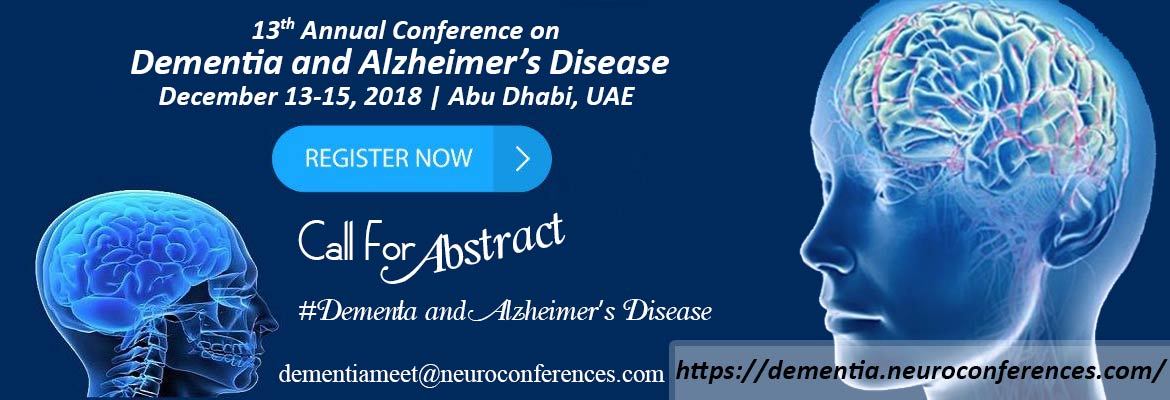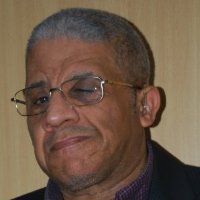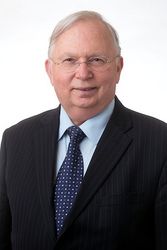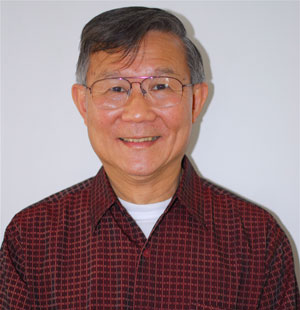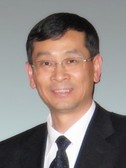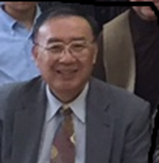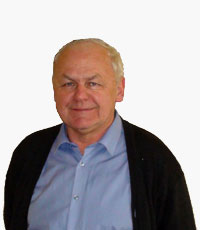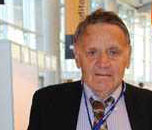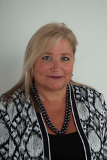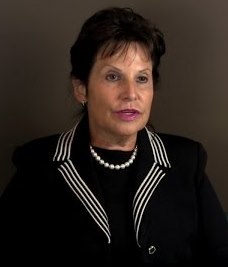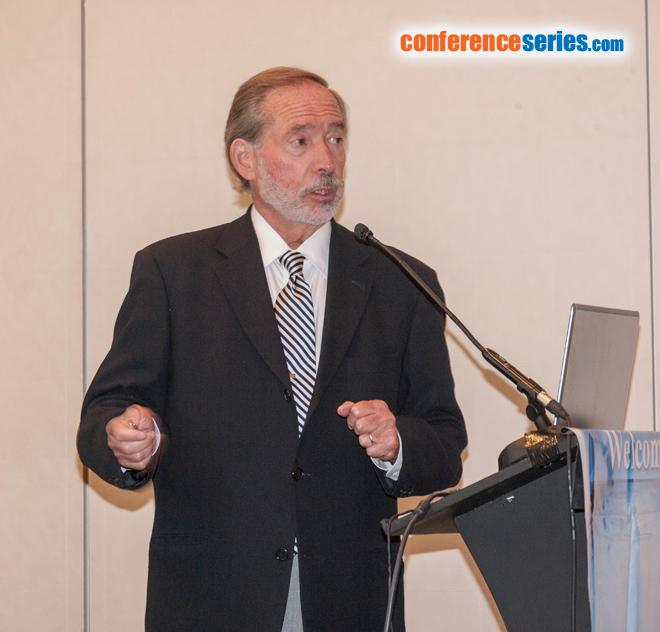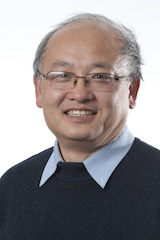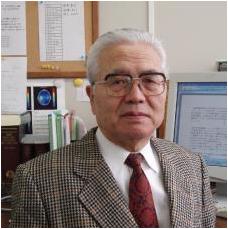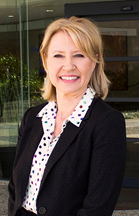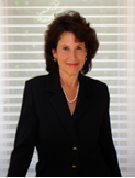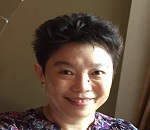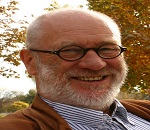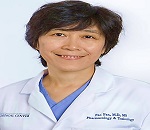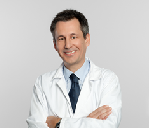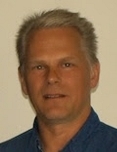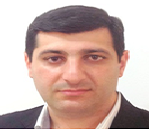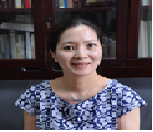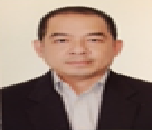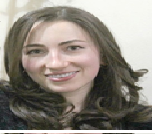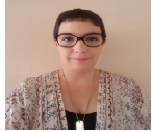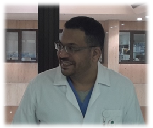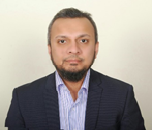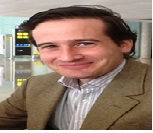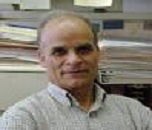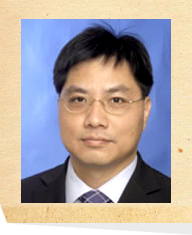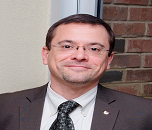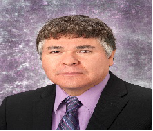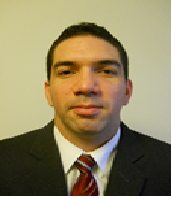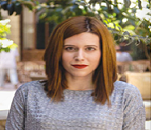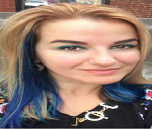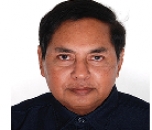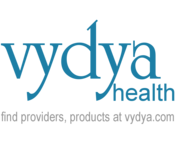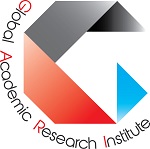Theme: Making a move on Dementia: New Answers to Old Questions
Dementia Conference 2018
Can We Cure Dementia?
Discovering a friend or family member has Alzheimer's or other type of dementia is scary. One of the primary inquiries individuals inquire as to whether there is a cure, or an approach to recoup? Not all memory loss is identified with Alzheimer's or dementia. There are different reasons you may encounter memory issues including thyroid issues, stretch, vitamin insufficiencies or certain medicines
- What do you think are the biggest public misconceptions of Alzheimer's disease?
- Will science ever discover a cure for Alzheimer's?
- What recent scientific advances in treating or understanding Alzheimer's would you say you are most amped up for?
- How will these change the diagnosis of the disease?
- Alzheimer’s Diseases
- Vascular Dementia
- Childhood Trauma and Dementia
- Neurovascular Dysfunction and Neurodegeneration
- Molecular and Cellular Basis of Neurodegeneration
- Neuroimaging Biomarkers
- Structural Neuroimaging
- Neurodegenerative Diseases
- Fixing Genetic risk for Alzheimer’s
- Medical Biotechnology and Alzheimer’s Disease
ME Conferences generally respects each one of the individuals from wherever all through the world to go to "13th Annual Conference on Dementia and Alzheimer's Disease" on December 13-December 15, 2018 at Abu Dhabi, UAE which consolidates prompt keynote presentations, Oral talks, Poster presentations and Exhibitions.
Dementia, including Alzheimer's affliction, is one of the best overall general prosperity challenges facing our age. Around the globe, no under 44 million people are living with dementia this number is depended upon to twofold by 2030 and more than triple by 2050 to 115 million. Dementia 2018 has been organized and realized according to the accreditation necessities and methodologies of the Accreditation Committee.
Track 1: Alzheimer’s Diseases
Alzheimer's Disease is irreversible and decimates cerebrum cells, making thinking capacity and memory weaken. Alzheimer's infection is a dynamic, degenerative mind ailment and the most widely recognized type of dementia, a gathering of brain disorders that influence a man's memory, considering and capacity to connect socially. Dementia and Alzheimer's infection isn’t the same. Dementia is a general term used to depict indications that effect memory, execution of day by day exercises, and correspondence capacities. Alzheimer's infection is the most widely recognized kind of dementia. Alzheimer's illness isn't a typical piece of maturing. We are leading exploration into the part of aggravation in Alzheimer's sickness to discover potential focuses for remedial mediation. The Dominantly Inherited Alzheimer Network is the main aim to discover biomarkers for Alzheimer's Diseases that are perceptible some time before the underlying clinical side effects. Members experience cerebrum checks and clinical evaluations and give blood and spinal liquid to explore. Presently utilizing hereditary linkage ways to deal with endeavor to distinguish these modifier qualities, which may give helpful focuses to the treatment of Alzheimer's sickness.
Track 2: Parkinson’s Diseases
Parkinson's ailment (PD) is an unending and dynamic neurological disorders that influence engine work, causing bradykinesia, postural unsteadiness, inflexibility and tremor very still. Side effects grow progressively, making start finding troublesome. PD likewise has a few non-engine highlights, including psychological wellness issues, rest unsettling influences and autonomic aggravations. At introduce, there is no cure for PD. The treatment is, subsequently, gone from treating side effects. There are right now two fundamental ways to deal with enhanced dopaminergic action inside the mind: expanding dopamine emission with exogenous operators and focusing on related neurotransmission pathways. Levodopa is the regular metabolic antecedent of dopamine and is profoundly successful for treating PD indications. Side effects of Parkinson's Diseases are normally overseen utilizing a specific dopamine receptor agonist. While these medications are valuable in beginning time Parkinson's, they tend to lose viability in later sickness stages
Track 3: Vascular Dementia
Vascular dementia is the second most regular reason for dementia after Alzheimer's Diseases. Vascular changes that begin in mind territories that assume a key part in putting away and recovering data may cause memory misfortune that looks especially like Alzheimer's illness. Vascular dementia is a decrease in intuition abilities caused by conditions that square or diminish blood stream to the brain, denying mind cells of fundamental oxygen and supplements. Deficient blood stream can harm and, in the end, dead cells anyplace in the body. The mind has one of the body's richest systems of veins and is particularly helpless. In vascular dementia, changes in speculation abilities now and then happen abruptly following strokes that square significant cerebrum veins. A developing number of specialists lean toward the expression " Vascular Cognitive Impairment (VCI)" to "vascular dementia”. A few examinations have discovered that vascular changes and other cerebrum irregularities may associate in ways that improve the probability of dementia finding. The analysis of dementia or gentle psychological impedance is affirmed by neurocognitive testing, which includes a few hours of composed or mechanized tests that give point by point assessment of reasoning abilities, for example, judgment, arranging, critical thinking, thinking and memory
Track 4: Childhood Trauma and Dementia
New research recommends there is a solid relationship between initial childhood trauma, for example, that accomplished by the stolen ages, and dementia. There is an expansive agreement demonstrating that childhood trauma is fundamentally associated with the improvement of sorrow. There is a solid connection between a high introduction to early life stress and affliction, that incorporates individuals that were a piece of the stolen ages, and the probability of being determined to have dementia sometime down the road. Psychic trauma is any psychological disorders that unexpectedly overpowers the ability to give a negligible feeling of wellbeing and integrative wholeness, bringing about overpowering nervousness or defenselessness, or its danger, and creating a continuing change in the psychic organization. Childhood trauma can influence mental and physical wellbeing into adulthood
Track 5: Alzheimer Disease and Cellular Mechanisms
Most continuous endeavors to battle Alzheimer Disease (AD) are centered around treating its clinical symptoms, however the neuropathologic changes fundamental AD show up decades sooner and turn out to be basically irreversible when the sickness achieves its clinical stages. This requires treating AD at preclinical stages, which requires a superior comprehension of the essential instruments prompting Alzheimer Disease pathology. Alzheimer's infection (AD) is a complex hereditary issue that is the main source of dementia in the elderly. Atomic confirmation raised the presumptions that trafficking of the amyloid precursor protein (APP) is under control of insulin flagging. Most progressing endeavors to battle Alzheimer infection (AD) are centered around treating its clinical side effects, however the neuropathologic changes fundamental AD show up decades sooner and turn out to be basically irreversible when the ailment achieves its clinical stages.
Track 6: Neurovascular Dysfunction and Neurodegeneration
Vascular insults can start a course of Molecular event occasions prompting neurodegeneration, psychological disorders, and dementia. Here, the molecular mechanisms and cell in cerebral veins pathophysiological occasions prompting disturbance of the blood-cerebrum obstruction and cerebral blood stream dysregulation and the neurovascular unit, which all may add to the beginning and movement of dementia and Alzheimer's disease. From the most punctual phases of improvement, when cerebral neurogenesis and angiogenesis are weaved, to the finish of life, the interaction between neural frameworks and vascular of the cerebrum is basic in wellbeing and infection. Cerebral blood stream control is fundamental for ordinary mind work. The mammalian mind has developed an exceptional system for CBF control known as neurovascular coupling
Track 7: Molecular Genetics and Biology of Dementia
Molecular biological research has considerably deepened our understanding of the pathophysiological basis of Alzheimer's dementia. Considerable progress has been made in our understanding of the genetics and molecular biology of dementia. Some genetic risk factors have been identified so far, but only a small proportion of AD cases can be explained by specific gene mutations. Genes may be related to disease in two ways: through autosomal-dominant mutations, in themselves sufficient to cause the disease alternatively, gene variations (polymorphisms) may indirectly increase disease risk without being sufficient in themselves to cause the disorder.
Track 8: Medical Biotechnology and Alzheimer’s Disease
Alzheimer's Disease as a dynamic and fatal neurodegenerative disease speaks to an immense neglected requirement for treatment. The low viability of current treatment techniques isn't just because of low medication intensity yet in addition because of the nearness of different hindrances in the conveyance courses. One of the fundamental boundaries is the blood brain boundary. The expanding predominance of Alzheimer's Diseases and the low viability of ebb and flow treatments have expanded the measure of research on unwinding of sickness pathways and advancement of treatment techniques. One of the fascinating regions for the last subject is biotechnology and their applications. Nanotechnology is a standout amongst the most vital field in biotechnology and has a noteworthy part in the improvement of novel remedial modalities with expanded adequacy. In the nanotechnology field, materials are designed with utilitarian association on the nanoscale. Every one of the materials are utilized for association and incitement of organic frameworks at the atomic level to instigate physiological reactions. One of the primary issues concerning the treatment of neurodegenerative diseases is identified with medicate conveyance
Track 9: Neuroimaging Biomarker
Alzheimer's disease Biomarkers, with emphasis on cerebrospinal fluid biomarkers and neuroimaging. Mild Cognitive Impairment (MCI) of Neuroimaging-biomarkers allow an early diagnosis in preclinical stages of Alzheimer’s disease. Biomarker changes in patients with late-onset AD, including findings from studies using structural and functional magnetic resonance imaging (MRI), advanced MRI techniques (diffusion tensor imaging, magnetic resonance spectroscopy, perfusion), positron emission tomography with fluorodeoxyglucose, amyloid tracers, and other neurochemical tracers, and CSF protein levels. The dynamic measures of these imaging biomarkers are used to predict the disease progression in the early stages and improve the assessment of therapeutic efficacy in these diseases in future clinical trials.
Track 10: Neurological Diseases
Neurological disorders are maladies of the focal and fringe sensory system. At the end of the day, spinal rope, cranial nerves, fringe nerves, nerve roots, autonomic sensory system and neuromuscular intersection. These disarranges incorporate epilepsy, Alzheimer illness and different dementias, cerebrovascular sicknesses including stroke, headache and other migraine issue, various sclerosis, Parkinson's infection, neuroinfectious, mind tumors, awful scatters of the sensory system because of head injury, and neurological issue due to hunger. Neurological manifestations may happen because of the contamination itself or because of a safe reaction. Countless individuals worldwide are influenced by neurological disarranges. Alzheimer's sickness is the most widely recognized reason for dementia and may add to 60– 70% of cases.
Track 11: Neurodegenerative Diseases
Neurodegenerative sicknesses are crippling, and it is a heterogeneous gathering of disarranges of serious conditions that outcome in dynamic degeneration. Neurodegenerative maladies cause issues with development called ataxias, or mental working called dementias. Neurodegenerative infections happen when nerve cells in the mind or fringe sensory system lose work after some time and at last pass on. Although medicines may help diminish a portion of the physical or mental side effects related with neurodegenerative infections, there is right now no cure or approach to moderate ailment movement. The danger of being influenced by a neurodegenerative increment drastically with age. A greatly little extent under five level of neurodegenerative infections are caused by hereditary changes. This makes a basic need to enhance our comprehension of what causes neurodegenerative infections and grow new methodologies for treatment and counteractive action
Track 12: Alzheimer’s and the Brain
The brain ordinarily therapists to some degree in solid maturing in any case, shockingly, does not lose neurons in huge numbers. In Alzheimer's sickness, be that as it may, harm is across the board, the same number of neurons quit working, lose associations with different neurons, and pass on. Alzheimer's disturbs forms fundamental to neurons and their systems, including correspondence, digestion, and repair. Acetylcholine is a neurotransmitter that is insufficient in individuals with Alzheimer's, the place beginning memory misfortune is trailed by more far reaching changes in considering and conduct that prompt lost freedom. Numerous molecular and cell changes happen in the mind of a man with Alzheimer's illness.
Track 13: Alzheimer’s Clinical Trials and Studies
To evaluate the safety and efficacy of an oral investigational drug in individuals who are asymptomatic and at-risk for Alzheimer's disease and investigating the effect of crenezumab infusion on Alzheimer's disease progression in individuals with prodromal or mild Alzheimer's disease. Presently the clinical trials and studies are mainly concentrates on Alzheimer’s Disease & Down Syndrome, aging to have the best chance of changing the outlook for people with dementia promising ideas must be driven through the development process and into clinical trials in people as quickly as possible
Track 14: Diagnostic Alzheimer
Doctors can't analyze Alzheimer's Disease until after death, when they can nearly inspect the brain under a magnifying instrument. However, they can utilize tests to decide out different conditions that may cause similar symptoms. Early, exact finding is advantageous for a few reasons. Starting treatment ahead of schedule in the illness procedure may help protect day by day working for quite a while, even though the hidden Alzheimer's procedure can't be ceased or switched. Alzheimer's dementia comes about because of the dynamic misfortune (degeneration) of brain cells. This movement may appear in an assortment of courses in brain scans. At present researchers are exploring a few ailment markers and demonstrative tests, for example, qualities, infection related proteins and imaging methods, which may precisely and dependably show whether you have Alzheimer's dementia or not. whatever, right now more research on these tests is important for future
Track 15: Dementia Care and Consulting
Caring for a person with dementia influences distinctive individuals in various ways. In any case, caring can also be both physically and rationally debilitating. It influences all aspects of your life and can influence you to feel separated, pushed and at times even discouraged. You may also have your own physical and psychological wellness needs, which you and others may neglect when you are tending to another person. There are numerous positive things about caring. These incorporate adapting new aptitudes, expanding on existing ones, reinforcing connections, having a feeling of pride in what you are doing, and supporting somebody who is imperative to you. Furthermore, because a man has dementia, it doesn't mean there won't in any case be great circumstances for you to share.
Related Coferences:
- 29th International Conference on Public Mental Health and Neuroscience, July 16-18, 2018 Dubai, UAE
- 31st Clinical Neuroscience and Neurogenetics Conference, August 13-14, 2018 Dubai UAE
- 25th International Conference on Neurosciences , September 17-18, 2018 Dubai, UAE
- International Child and Adult Behavioral Health Conference September 13-14, 2018 Dubai, UAE
- Neurodegenerative and Neuroinflammation Conference October 18-19, 2018 Helsinki, Finland
- 3rd International Conference on Neurooncology and Neurosurgery September 20-21, 2018 Dubai, UAE
- 11th International Conference on Alzheimer’s Disease & Dementia May 24-25, 2018, Vienna, Austria,
- 10th World Congress on Alzheimer’s Disease & Dementia May 30-31, 2018 Osaka, Japan
- 25th World Congress on Neurology & Neuroscience June 18-19, 2018, Dublin, Ireland
- 4th International Conference on Neurological Disorders & Stroke July 09-10, 2018 Sydney, Australia
- 25th World Congress on Neurology and Neurodisorders July 16-17, 2018 Melbourne, Australia
- 2nd International Conferences on Alzheimer's and Parkinson Diseases, March4-6,2019 at London, UK
- 11th Clinical Trials On Alzheimer's Disease (CTAD) October 24-27, 2018 - Barcelona, Spain
- International Conference on Vascular Dementia July 23-25, 2018 Moscow, Russia
Related Societies:
USA: Alzheimer's Association, Dementia Society of America, Alzheimer's Foundation of America, Alzheimer's Society united against Dementia, Alzheimer Society of Canada, Alzheimer Society of Toronto, Alzheimer Society of Ireland, Alzheimer's Aid Society of Northern California, Lewy Body Dementia Association, The Association for Frontotemporal Degeneration, The Alzheimer Society of Manitoba (ASM), Alzheimer’s Research Centers & Organizations, Lewy Body Society, Alzheimer's Drug Discovery Foundation, American Academy of Neurology, The American Neurological Association, Child Neurology Society, Society for Neuroscience, American Association of Neurological Surgeons, American Psychological Association, American Neuropsychiatric Association (ANPA), California Neurology Society, Society of Vascular and Interventional Neurology.
Europe: Alzheimer's Research UK, The British Neuroscience Association, Association of British Neurologists, The Society of British Neurological Surgeons, British Society for Clinical Neurophysiology, The British Pediatric Neurology Association, Epilepsy Society, Alzheimer Society of London & Middlesex, UK Dementia Research Institute, Lewy Body Dementia Association, Alzheimer Europe, Jersey Alzheimer's Association.
Asia–Pacific: Dementia Australia, Australian Frontotemporal Dementia Association (AFTDA), Dementia Care International, Brain Foundation, Australian Association of Gerontology (AAG), The Chinese Dementia Research Association, Lewy Body Dementia Association, Alzheimer's Association Japan, Japan Medical Association’s Efforts in Dealing with Dementia, The Dementia Association of Thailand, Alzheimer’s Disease Association (Singapore), National Asian Pacific Center on Aging, The Hong Kong Society for Aged, Hong Kong Alzheimer's Disease Association, Hong Kong Epilepsy Society, Hong Kong Parkinson's Disease Association.
Middle -East: Emirates Neurology Society, German Neuroscience Center Dubai, Romanian Society of Neurology, Romanian Society of Neurosurgery, Romanian Alzheimer Society, European Federation of Neurological Associations, Romanian Society of Gerontology and Geriatrics, Gerontology Research Center, Aging Research in Finland, World Stroke Organization, Brain Research Society of Finland, Alzheimer Society of Finland, Dementia Society of the Philippines, Asian Society Against Dementia (ASAD), Malaysian Healthy Ageing Society, New Zealand Society for Geriatric Medicine
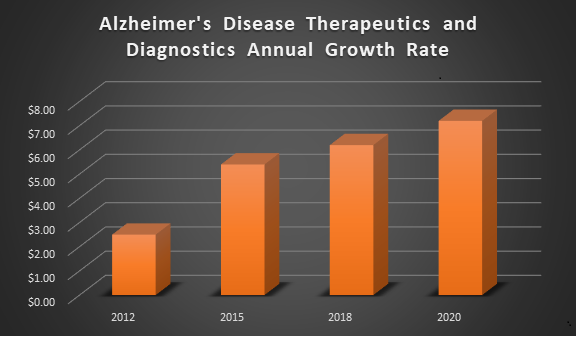
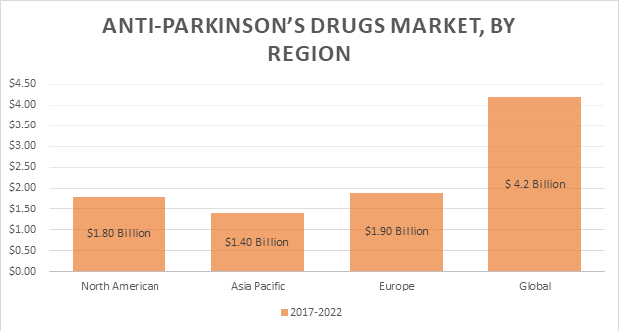
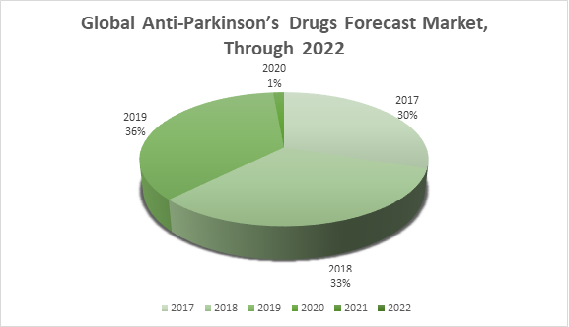
- The Journal of the Alzheimer’s Association
- International Journal of Alzheimer's Disease
- Journal of Alzheimer’s Disease
- Journal of Community Health Research
- Asia Pacific Family Medicine
- Journal of School of Public Health and Institute of Public Health Research
- AIMS Public Health
- An International Journal on Alzheimer’s Disease and Associated Disorders
- African Journal of Primary Health Care & Family Medicine
- Indian Journal of Community Medicine
- The Global Voice on Dementia
- International Journal of Family Medicine
- National Journal of Community Medicine
Conference Highlights
- Parkinson’s Diseases
- Vascular Dementia
- Childhood Trauma and Dementia
- Alzheimer Disease and Cellular Mechanisms
- Neurovascular Dysfunction and Neurodegeneration
- Molecular Genetics and Biology of Dementia
- Medical Biotechnology and Alzheimer’s Disease
- Neuroimaging Biomarkers
- Alzheimer’s Diseases
- Neurological Diseases
- Neurodegenerative Diseases
- Alzheimer’s and the Brain
- Diagnostic Alzheimer
- Dementia Care and Consulting
- Alzheimer’s Clinical Trials and Studies
To share your views and research, please click here to register for the Conference.
To Collaborate Scientific Professionals around the World
| Conference Date | December 13-15, 2018 | ||
| Sponsors & Exhibitors |
|
||
| Speaker Opportunity Closed | Day 1 | Day 2 | |
| Poster Opportunity Closed | Click Here to View | ||
Useful Links
Special Issues
All accepted abstracts will be published in respective Our International Journals.
Abstracts will be provided with Digital Object Identifier by

